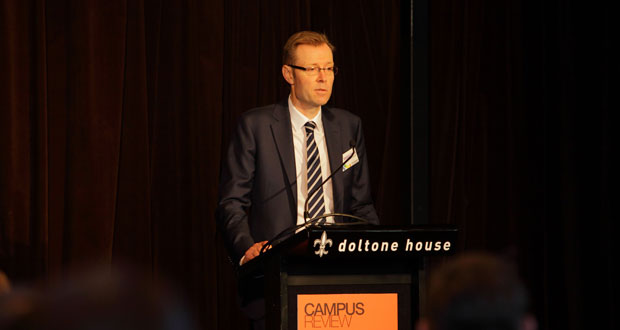Speculation about reversing the infamous job-ready graduates (JRG) scheme has increased after the Albanese government changed the way university loans are indexed, but did not offer respite to those students paying up to 117 per cent more than some of their peers.
The Morrison-era JRG reform was meant to entice prospective students to industries with skills shortages such as teaching and nursing, by lowering the HECS fees, but did not achieve the goals it set out to.
It also raised fees in other courses, such as arts degrees, which has left graduates with relatively median remuneration careers with a disproportionately higher debt. Fees rose by as much as 117 per cent for some courses, and dropped by as much as 59 per cent for others.
The average HECS-HELP loan is $26,500. Students who are paying off arts, humanities or communications classes throughout a three-year undergraduate degree have a debt of $45,000 or more.
The scheme also increased fees for law, accounting, economics and business students, who on average, earn more than their arts and humanities peers. Students from these cohorts will pay about $16,323 in fees just this year.
Calls to reverse the loan model will come under the purview of the Australian Tertiary Education Commission, that will likely not become active until January 1 2026.
Jobs and Skills Commissioner Barney Glover said assessing things like the JRG scheme is the "fundamental role of ATEC".
"[ATEC] is a pricing authority. There's a very clear role for the ATEC to, very quickly, start looking at the pricing and costing of higher education," he recently said on a panel at a conference of higher education leaders.
"That's where JRG reform would come in, in advice to the government about resetting funding cluster rates and other associated costs.
"That's the methodology that [the Accord panel] felt was crucial, because resetting funding cluster rates is a really complicated challenge."
Plans to address the scheme were not outlined in the May federal budget or the government's response to the Universities Accord final report, although it was an Accord recommendation.
Higher education policy and funding expert Andrew Norton told Campus Review he thinks it is reasonable to leave comprehensive reform of JRG student contributions until ATEC is established.
"Most graduates with Arts and Humanities bachelor degrees, due to indexation, will not end up earning enough to pay back all their university debt.
"So, if the government were to reduce arts student contributions, they wouldn't be losing as much money as it seems.
"An interim change should be made for arts and humanities courses to reduce the number of people accumulating debts that they will not be able to pay back during their careers."
Although reversing existing JRGs Arts and Humanities debt could be more costly, Mr Norton said the logic would be similar.
The current threshold where a graduate starts paying off their student debt, which is updated annually, is $51,550.
Recent changes to HECS loans will see then indexed to either wage price index (WPI) or consumer price index (CPI), whichever is lower and will be backdated to June 1, 2023.
This means a student with the average debt of $26,500 will get $1500 taken off their loan, and a student with a loan of $45,000 will get roughly $2000 back.
An implementation advisory committee that will oversee the creation of ATEC, and other Accord reforms, was established in May. ATEC is expected to be active from January 1, 2026.
Do you have an idea for a story?Email [email protected]
 Campus Review The latest in higher education news
Campus Review The latest in higher education news

